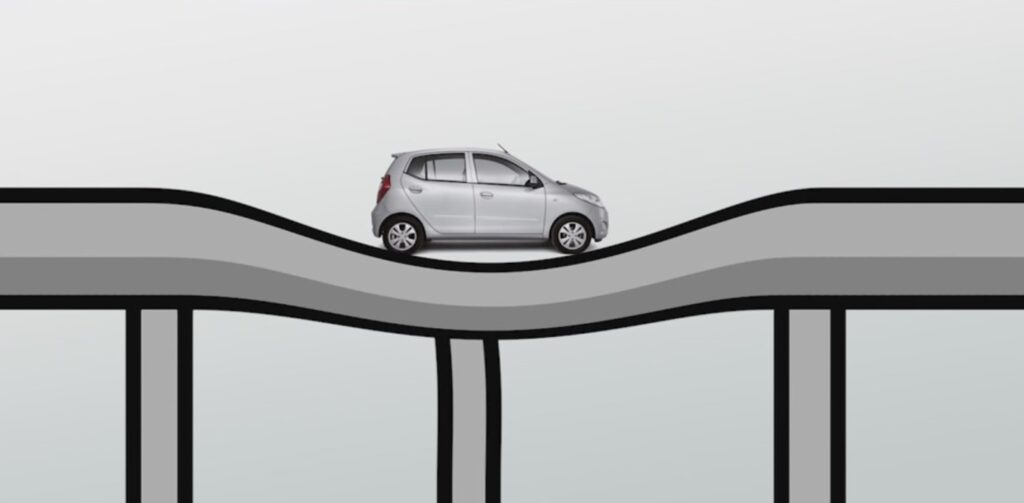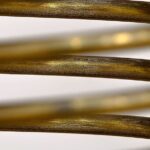Stress:
“When a body is subjected to some external force, there is some resistive force generated per unit area, This resistive force generated per unit area is known as ‘Stress’.”
Mathematically is written as,

Units of stress:
As the stress is given as Load upon Area
It’s units depends on the unit of force and unit of area..
In M.K.S. System,
The force is expressed in Kgf.
area is expressed in meter square(m*2)
hence, The unit of stress is kgf/cm*2
In S.I. System,
This is widely used system in which the force is expressed in Newtons(N) and the area is expressed in m*2.
Hence, the unit of stress becomes as N/m*2.
If the area is expressed in milli metre.
Hence, the unit of stress becomes as N/mm*2.
In S.I. system, It is expressed either in N/m*2 or N/mm*2.
Conversion for these two units is 1N/m*2 = 10*-6 N/mm*2.
Types of Stresses:
This stresses are distinguished into three types based on the nature of the forces acting on it:
 |
| Compressive Stress. |
If the forces are perpendicular to the cross sectional area and are towards/inwards/pushing in nature to the cross sectional area, then the stresses generated are “Compressive stresses”.
 |
| Tensile Stress |
If the forces are perpendicular to the cross sectional area and are away/pulling from the cross sectional area then the stresses generated are known as “Tensile Stresses”.
 |
| Shear stress |
If the forces are parallel to the cross sectional area i.e., tangential to the resisting section, then the stresses generated is known as “Shear Stress”.
Comparison of stresses:
This pictures clearly shows, the comparison of force nature and the stresses generated.
 |
| Brief comparison of different stresses based on nature of forces. |



